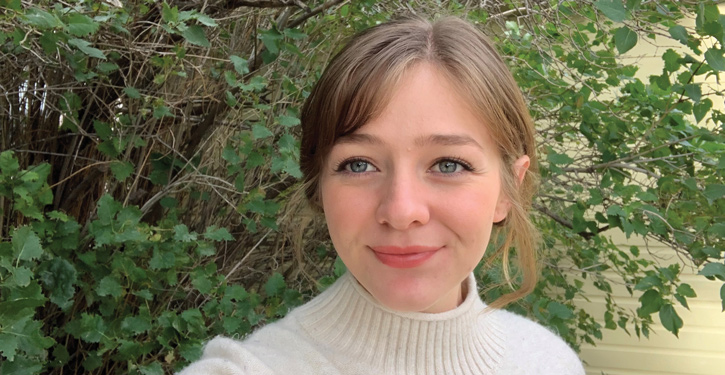This issue, Klancy Poor, the Mental Health Awareness Training Program coordinator at the University of Wyoming, shares advice on mental health.
Can you share some of your top efforts for students when it comes to mental health awareness?
KP: Right now, at the University of Wyoming (UW) there’s an emphasis being placed on mental health awareness and training efforts. Within Campus Rec, and the Wellness Center specifically, our effort is going into Mental Health First Aid (MHFA) Training, other Mental Health Awareness Training (MHAT) and activities for our entire community — not just on campus. A good example is our Finals De-stressor week. We host it every finals week in partnership with UW Libraries. This is a week-long event where students can stop by different locations throughout the library and Wellness Center to engage in some fun and relaxing, de-stressing activities.
Can you share some of your top efforts for professional staff mental health awareness right now?
KP: This is such an important topic right now. We know mental health in college students can be challenging, but we’re also very focused on the well-being of our staff and faculty — and even general community members — because they’re the ones serving the students.
We’re working to partner/collaborate with other departments on campus and in the community to provide either MHFA or MHAT. We can provide private training opportunities in addition to the public offerings that are already scheduled. That way, specific groups can focus on specific issues and decide on a training schedule that works for them.
Would you speak specifically to offering MHFA? How do you use it on campus and get staff involved?
KP: The key to getting staff involved is to make them aware and make the time commitment a little less daunting. Since the in-person part of the training takes about seven hours, we decided to offer it in both one-day and two-day sessions. The one-day session takes all day and is usually offered on weekends during the fall and spring semester. The two-day session is split into 3.5 hours over two days. We’ve had a lot of success with this strategy. Staff members have shared having the option of one or two days works much better for their schedule.
Ultimately, I try to advertise in as many places as I can and speak to anyone who will listen. The summer is a very important time of year because staff members have more time to participate in trainings. I spend a lot of my days in the summer walking around campus talking to people about mental health awareness and training opportunities, as well as hanging up flyers. Social media is always a go-to, but we’ve found word of mouth works better in our rural community.
We can offer MHFA Training for free thanks to a five-year grant from the Substance Abuse and Mental Health Services Administration. This grant provides us with the funding to implement MHFA and other MHAT into our campus and greater community.
What advice would you give other campus rec professionals and promoting mental health awareness on their campuses?
KP: Be patient but stay persistent. I often feel like a nuisance to some because of how many emails and/or marketing materials I send them, but it works. On a college campus, everything operates a lot slower than you want it to. It can be frustrating, but keep doing it because there are people around you who need the help or need to learn how to help. Your efforts will always be worth it, even if you only impact one person. One life saved is a really wonderful thing.
Anything else to add on this topic?
KP: Talking about mental health with other people can be hard and scary. But I’ve had a lot of success when I speak from the heart and use my own personal experiences. We all experience mental health challenges, even if you don’t have a diagnosis. So do your best to talk about your experiences in a helpful way. Sometimes those experiences are painful, but sharing them opens the door and creates the space for someone else to feel seen and hopefully a little less alone. We all have the ability to have conversations about mental health.










